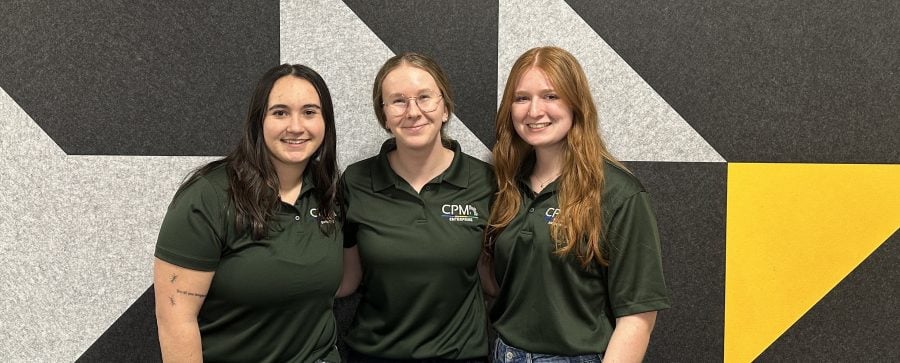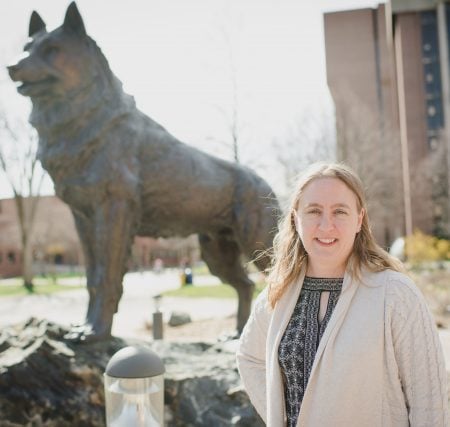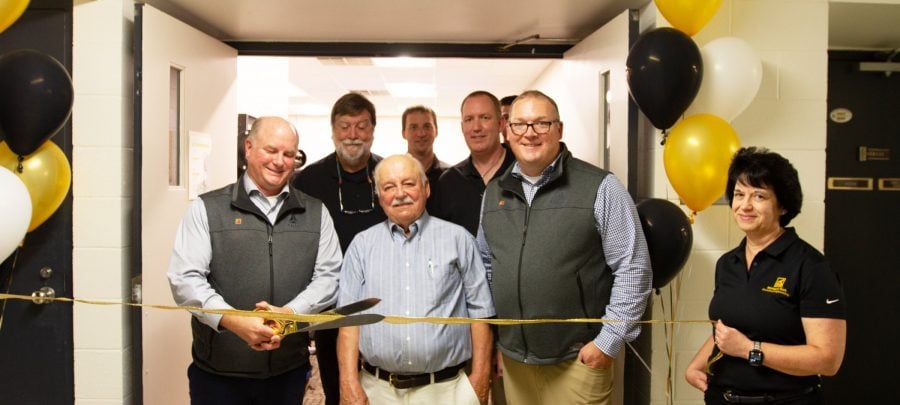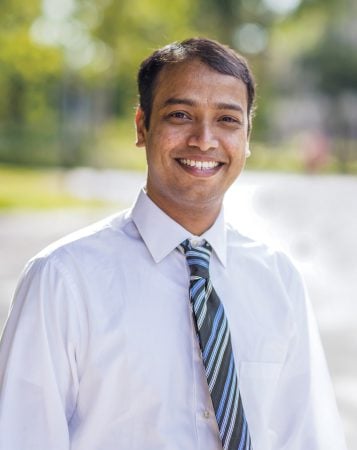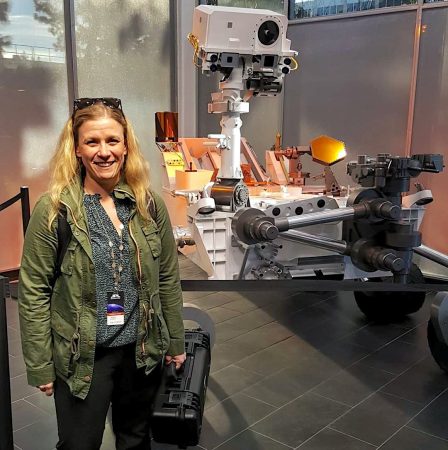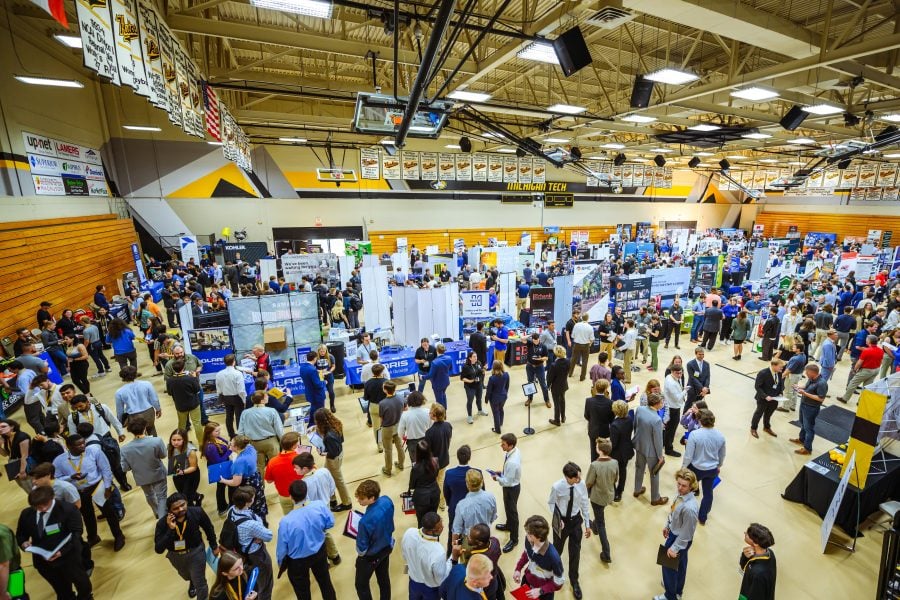
As Huskies gear up for Michigan Technological University’s Fall Career Fair on Tuesday, Sept. 23, they’re looking for on-point advice to land co-ops, internships, and full-time jobs.
Cody Woodbury ’20 has got them covered. Woodbury is a process engineer at Koppers, a global leader in the development of progressive wood treatment technologies. He’s one of the many Michigan Tech students who did a co-op with the company and went on to be hired full-time.
In this Q&A, the chemical engineering grad shares practical advice for students on topics like why it’s important to ask prospective employers questions, how to understand what success looks like during a co-op, and how to make the most of your time at Tech.
